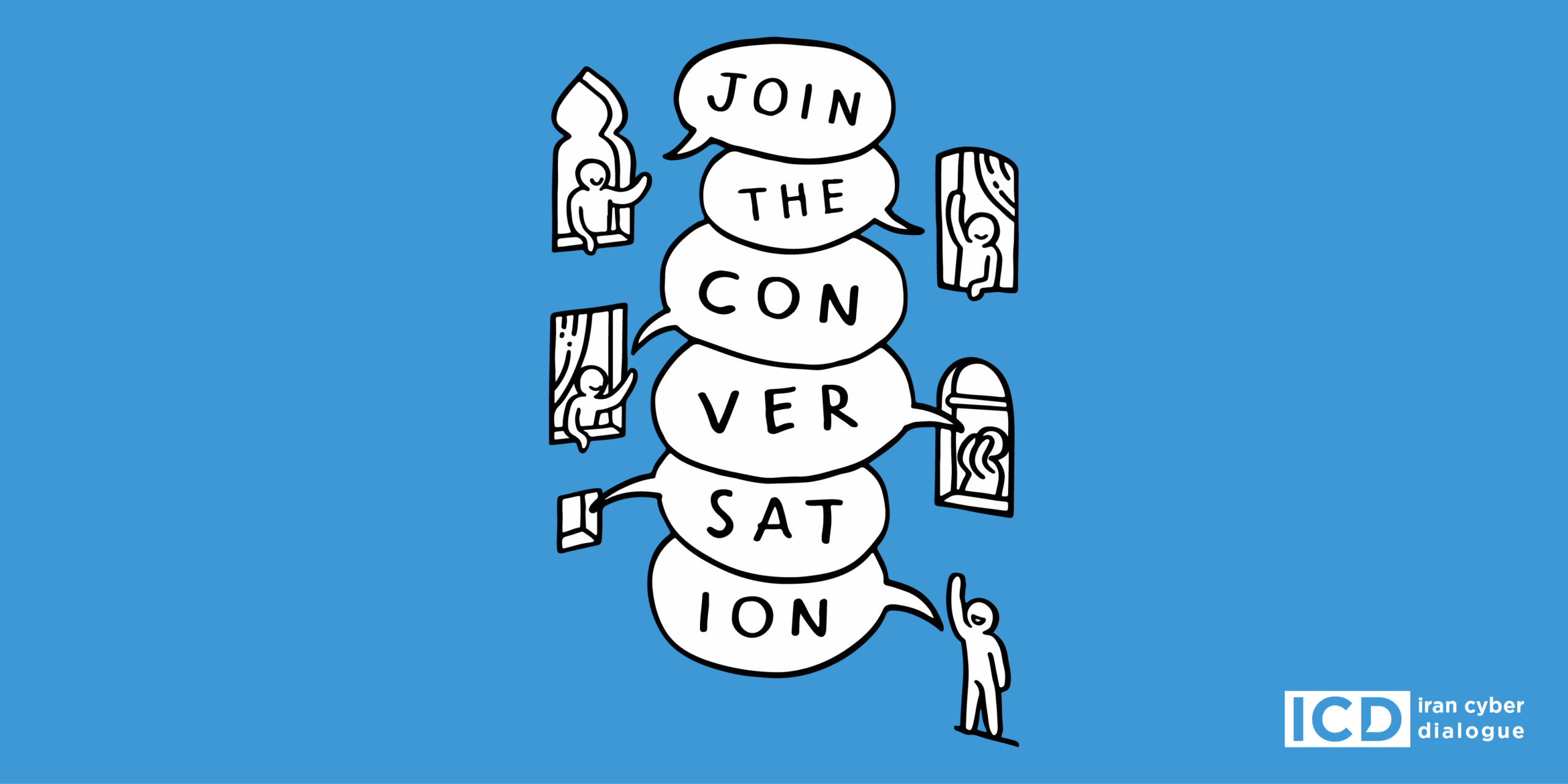Editor’s note: Access Now was born in 2009 during the Iranian election, which was widely viewed as fraudulent. When democracy activists used the internet to share information, the Iranian government took the unusual step of shutting off internet access across the country. We were founded as an emergency team of technologists to get people back online — so that activists could freely share information and journalists could show the world what was happening.
This year, through our signature conference — RightsCon — we are collaborating with ASL 19’s Iran Cyber Dialogue (ICD), an annual global conference on ICT development, human rights, and diplomacy.
In this guest post, Olivia Ito explains why the organization is collaborating with us and working to establish a dialogue between human rights defenders in Iran and companies such as Facebook and Google, which have an important role to play in safeguarding free expression online.
It is critical to bridge the gap between people who are doing potentially life-threatening work to make the world a better place and tech companies that can help enable them to do it. Collaborative efforts can help us break out of the usual ways of thinking so that we can better address realities on the ground. If companies can provide better online protection, privacy, and services for people around the world, it will impact how human rights activists carry out their work. This, in turn, will impact how societies transform over the years.
This is the crux of why Iran Cyber Dialogue is collaborating this year with RightsCon. It’s a sign that times are changing. There’s a new world emerging at the intersection of human rights and technology, where partnerships like this are possible. With the new Iran deal in place and potential changes in sanctions, it is an opportune time to advocate for Iranians’ access to technology with other allies in the world.
RightsCon has been effective in engaging activists from around the world, as well as bringing to the table representatives from major platforms like Facebook and Google. Iran Cyber Dialogue is doing the same, with a specific focus on Iran. There are other groups that are organizing in places like China, Tibet Autonomous Region, and Syria.
The possibilities are exciting. Imagine if we all tapped into each other’s networks of knowledge, expertise, and resources. People who are living under oppressive regimes are figuring out ways to “hack the system” to allow them not only to access online services, but also to obtain information, tap into communities and networks, and find spaces to collaborate within.
The fight for better access to online services is not just so that people can keep up-to-date on what their friends and family are doing. When we strengthen the connections and deepen the conversations between human rights groups and technology companies, we can influence and improve lives. Safeguarding freedom of expression is key to other human rights efforts. But access to information is not just socially important. It also has a significant positive economic and political impact. For these reasons, it’s in the best interest of countries around the world to improve citizens’ access to technology.
The tech giants of the world can help them do this. Technology can help advocates raise awareness about important issues, change dialogue, and even mobilize people on the ground. There are a number of ways that major companies can support human rights activists. For example, Facebook’s “real name” policy requires that people create accounts that use their real name. However, for those who live under oppressive regimes, communicating using your real name can get you killed, tortured, and/or imprisoned. If we could work with companies to change policies like this, and be consulted on other policies that could harm rights, we could help protect countless activists and civil society members around the world.
But we need buy-in from major companies to make these changes happen.
We acknowledge that this space is not for everyone. Some argue that activists would be safer not using major online platforms at all. However, around the world, people are already organizing online and using the platforms that are accessible to them. These include human rights and civil society activists who use email, social media, and other online services to carry out their work. Activists, civil society members, and tech companies are also holding private and public discussions aimed at directly addressing the barriers that vulnerable groups and people are now experiencing. Importantly, many of these discussions are being co-created by the people facing these challenges.
Both ICD and RightsCon make it a point to create community-driven events instead of dictating the agenda. Additionally, we’re working toward outcomes that offer practical solutions to the most pressing issues: circumvention, security best practices, technology and sanctions, and a comparative approach to information controls.
The questions that we’ve been asking separately have been impactful in changing how people understand how to work in the intersection of human rights and technology, but by collaborating at RightsCon, we can make this effort more focused and accelerated.
We want to know:
- How can tech companies change or create services to better protect activists?
- What are the tools and resources out there that will help people succeed in their work?
- How can we work to change governmental policies and systems that infringe on the human and civil rights of their citizens?
This is not an unlikely alliance between us and the technology companies. It is a necessary one. We are trying to figure out how we can freely, safely change the world using online technology. Establishing these kinds of partnerships and collaborations, worldwide, is one of the most effective ways to do it.
You can register your interest in attending the 2016 Iran Cyber Dialogue here.
About the author: Olivia Ito is the Community Manager at ASL 19 and has a background in events management, communications, and community building. She is always on the hunt for conversations on how networks and communities working together can drive change.
